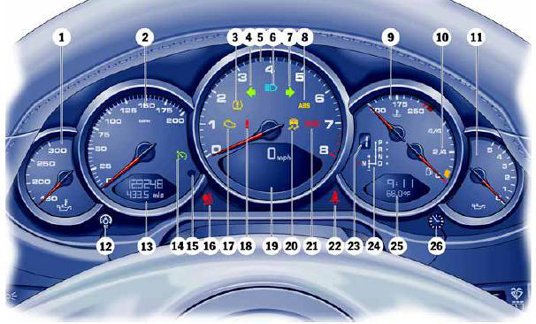Introduction
Porsche Stability Management (PSM) is a crucial safety feature in Porsche vehicles, designed to enhance stability and control, particularly in adverse driving conditions. However, like any advanced system, it can sometimes encounter issues. Understanding PSM failure is essential for maintaining your Porsche’s performance and safety. This article delves into the causes, symptoms, and solutions for Porsche PSM failure.
What is Porsche Stability Management (PSM)?
Overview of PSM
PSM is an advanced electronic stability control system integrated into Porsche vehicles. It uses sensors to monitor various parameters such as steering angle, wheel speed, yaw velocity, and lateral acceleration. When it detects a potential loss of control, PSM intervenes by adjusting engine power and applying brakes to individual wheels, helping the driver maintain control.
Importance of PSM
The PSM system is vital for ensuring driving safety, especially during high-speed maneuvers, slippery roads, or sudden changes in direction. It provides an extra layer of security by preventing skidding and improving overall vehicle stability.
Common Causes of PSM Failure
Sensor Issues
PSM relies heavily on various sensors to function correctly. If any of these sensors malfunction or provide incorrect data, it can lead to PSM failure. Common sensor-related issues include:
- Wheel Speed Sensors: These sensors monitor the speed of each wheel. Dirt, debris, or damage can cause them to malfunction.
- Yaw Rate Sensor: This sensor measures the vehicle’s rotation rate. Faulty wiring or calibration issues can lead to errors.
Electrical Problems
Electrical issues can disrupt the communication between the PSM system and other components of the vehicle. Common electrical problems include:
- Faulty Wiring: Damaged or corroded wiring can prevent signals from reaching the PSM system.
- Battery Issues: A weak or failing battery can cause intermittent PSM failures.
Software Glitches
PSM, like any computer system, can experience software glitches or bugs. These can result from outdated software versions or corrupted files.
Mechanical Failures
Mechanical components, such as the brakes or steering system, directly interact with PSM. Issues in these areas can lead to PSM failure. Examples include:
- Brake System Problems: Worn-out brake pads or malfunctioning brake calipers can affect PSM performance.
- Steering System Malfunctions: Issues with the power steering system can interfere with PSM operation.
Symptoms of PSM Failure
Warning Lights
One of the most apparent signs of PSM failure is the illumination of warning lights on the dashboard. The PSM warning light might come on, often accompanied by other indicators like ABS or traction control warnings.
Reduced Stability and Control
If the PSM system is not functioning correctly, you might notice a significant reduction in vehicle stability and control, especially during cornering or in slippery conditions.
Unusual Noises
Unusual noises from the brakes or steering system can indicate underlying issues that might affect the PSM system. Listen for grinding, squealing, or clicking sounds.
Erratic Behavior
Erratic behavior, such as unexpected braking or acceleration, can signify PSM issues. These symptoms can be dangerous and warrant immediate attention.
Diagnosing PSM Failure
OBD-II Scanner
Using an OBD-II scanner can help identify the specific error codes related to PSM failure. These codes can provide valuable insights into the underlying issue.
Professional Inspection
A professional mechanic with experience in Porsche vehicles can perform a comprehensive inspection, checking the sensors, wiring, software, and mechanical components to diagnose the problem accurately.
Solutions for PSM Failure
Sensor Replacement
If the diagnosis reveals faulty sensors, replacing them can resolve the PSM issues. Ensure you use high-quality, OEM (Original Equipment Manufacturer) parts for the best results.
Electrical Repairs
Addressing electrical problems involves checking and repairing damaged wiring, ensuring proper battery function, and resolving any connectivity issues.
Software Updates
Regularly updating the vehicle’s software can prevent and fix glitches. Porsche often releases updates to improve system stability and performance.
Mechanical Repairs
Mechanical issues affecting the PSM system should be addressed promptly. This might include replacing brake pads, fixing calipers, or repairing the steering system.
Preventive Maintenance
Regular Inspections
Routine inspections by a qualified mechanic can catch potential issues before they become severe. Regularly checking the sensors, electrical systems, and mechanical components is crucial.
Timely Software Updates
Keep your vehicle’s software up to date to prevent glitches and improve system functionality. Check with your Porsche dealer for the latest updates.
Proper Driving Practices
Adopt driving practices that minimize wear and tear on your vehicle. Avoid harsh braking, maintain a steady speed, and drive cautiously in adverse conditions.
Conclusion
Understanding and addressing Porsche PSM failure is crucial for maintaining your vehicle’s performance and safety. By recognizing the common causes, symptoms, and solutions, you can ensure your Porsche remains in top condition. Regular maintenance and timely repairs will help you enjoy the benefits of the PSM system, providing you with a safe and enjoyable driving experience.
FAQs
What should I do if my Porsche’s PSM light comes on?
If the PSM light comes on, it’s best to have your vehicle inspected by a professional mechanic as soon as possible to diagnose and address the issue.
Can I drive my Porsche with a malfunctioning PSM system?
While it might be possible to drive, it’s not recommended. A malfunctioning PSM system can compromise your vehicle’s stability and safety.
How often should I update my Porsche’s software?
Check for software updates at least once a year or during your regular maintenance visits. Consult your Porsche dealer for the latest updates.
Are PSM failures common in Porsche vehicles?
PSM failures are relatively uncommon but can occur due to sensor issues, electrical problems, or software glitches. Regular maintenance can minimize the risk.
How much does it cost to repair a PSM system?
The cost of repairing a PSM system can vary widely depending on the underlying issue. Sensor replacements might cost a few hundred dollars, while more extensive electrical or mechanical repairs can be more expensive.







